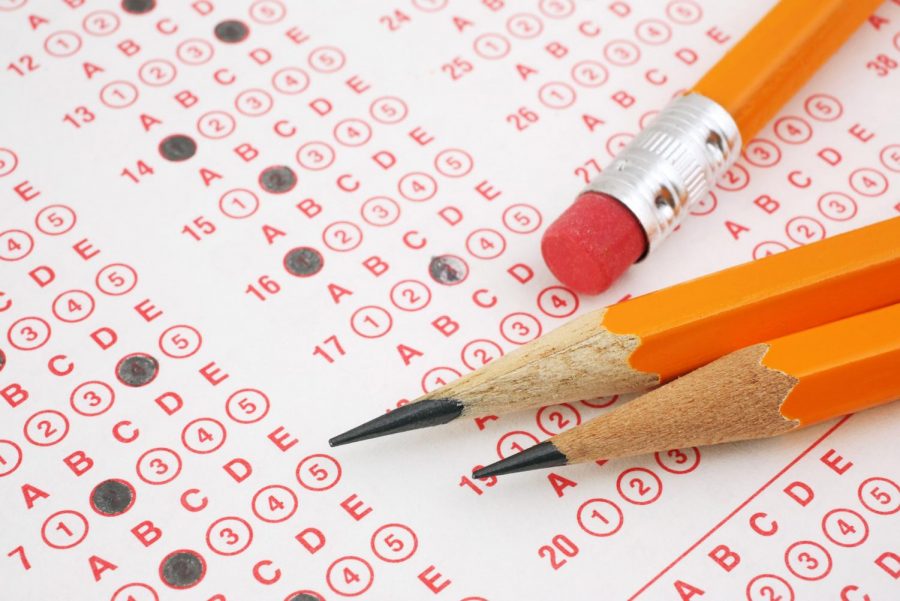To Test or Not to Test? Corona Seems to Push for No
October 1, 2020
Seniors all over the nation have scrambled to take their standardized tests in the time of COVID, and Tenafly is no exception. Cancellations of SATs and ACTs have taken a toll over the past several months. With the first semester of senior year beginning, the absence of test scores and the scarce time left to take the test are greatly stressing out current college applicants.
The SAT, which stands for Scholastic Assessment Test, is seen as one of the most vital aspects of a high schooler’s step to college. In just 2018 alone, 2.1 million students from all over the US took the standardized test, according to the College Board. But the test is only given in the following months: March, May, June, August, October, November, and December. The ACT, American College Testing, is another such standardized test. Unlike the SAT, which is administered by the College Board, the ACT is administered by a nonprofit organization of the same name, and each section, including a science portion that its counterpart doesn’t have, is timed shorter. The ACT is given in September, October, December, February, April, June, and July. Typically, high school juniors take their SAT orACT during the spring and then possibly retake the test in the following summer or fall. But some people choose to get theirs out of the way by taking them earlier. Some students, such as Michelle Lee (‘21) and Selin Abali (‘21), have already taken the test once in the winter but were depending on the next test date to retake it. Unfortunately, those who were preparing for their first or second test in spring never got to take it. “I was signed up to take it in July, thinking that the pandemic would be over by then, but it got canceled. Then I signed up for August, but my testing location got canceled again,” Abali said. Afterwards, registering for the next test date on the College Board or ACT website, only to have it crash, and then finding every location’s capacity filled up once the website has recovered became a shared experience for high school upperclassmen in 2020. Abali continued, “It’s really frustrating because you start studying for a test, and then it ends up getting canceled. Also, in my case, I have only found out about test cancellations about a week before.”
Fortunately, there are solutions that Tenafly has tried to put in place to rectify the problem and aid the disadvantaged high school students. Exclusively for its Tenafly students (juniors and seniors only), there was a school day SAT held at the school on September 23rd, and another school day ACT scheduled for October 10th.
At the same time, the validity of standardized testing in reflecting a student’s true academic capabilities has started to be questioned. Should standardized testing remain as a crucial requirement for college applications after the pandemic subsides? Or should a holistic examination (reviewing all aspects of an application) be the norm for college admissions? Both Lee and Abali expressed that standardized tests aren’t fully accurate to determine a student’s merit. “Not only is the standard in US education not consistent but also, some students get extremely anxious before tests, which may lead them to perform worse even if they know the content well,” Abali said. Lee expressed another reason to why standardized testing isn’t fair for everyone: “Although it [standardized testing] is put into place in order to give all students a fair chance at adding a reliable score to their applications, financially privileged students who have the resources to take more tests, afford test tutoring, and test prep are already set up to do better than students who are not as privileged.” Even during the pandemic, there were many cases in which students took the test out of state for an available spot. Not every teen could afford to pay the plane fare to travel to take the test, and so they were at a disadvantage compared to those who could.
But along with the cancellations, the new perspective towards the necessity of standardized testing may shape the future of the college application process positively, benefitting the many who were disadvantaged by the tests. With more and more colleges switching to test-optional, many of them may stay test-optional even after the pandemic. “Hopefully as time goes on, we are able to find a better way to reform this aspect of secondary education so that all students can truly and fairly show what they are capable of,” Lee said.

















































































































































